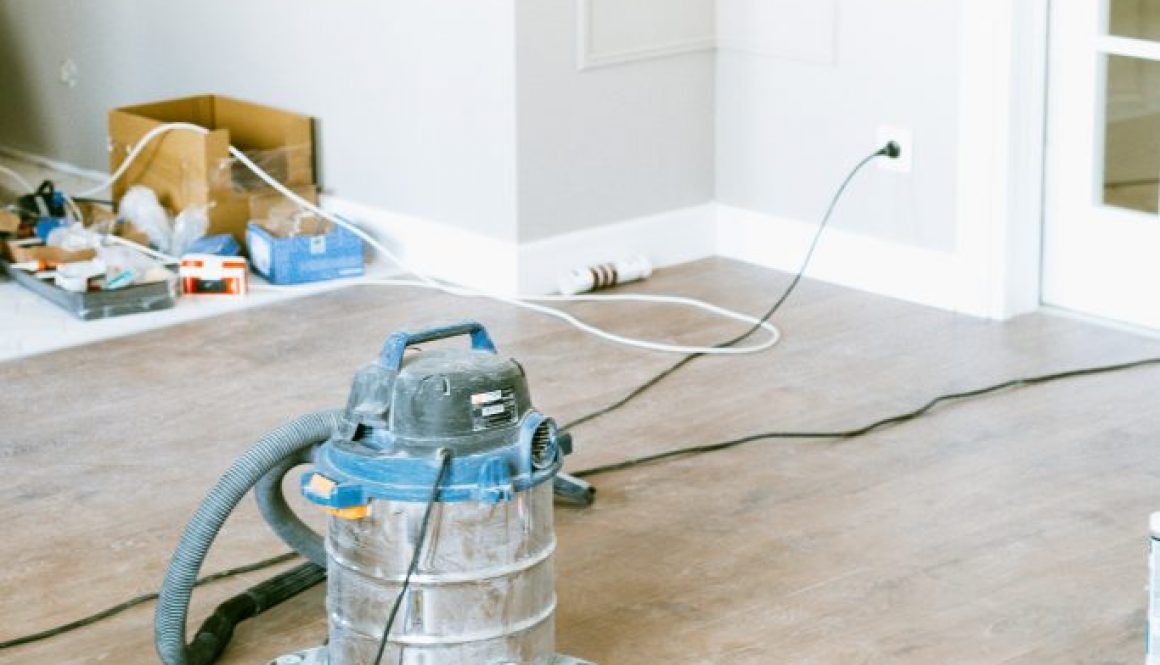Is Vinyl Flooring Really a Good Option?
Flooring Tips Handy Tips
Despite the variety of choices facing the consumer—ceramic tile, plank wood, engineered wood and laminate materials—vinyl flooring remains a statistical standout year after year, accounting for almost 18% of the flooring industry’s overall sales volume.
To make the most fully informed decision on flooring let’s explore some of the Pros and Cons of Vinyl Flooring.
Pros
1. Comfort and User-Friendliness
Whether you’re wearing boots or barefoot, vinyl flooring feels more comfortable to walk on than other options. Vinyl offers you a slightly softer walking surface—a “spring” to every step you take—produced by the fact that the product is produced with a thin backing of resilient foam or felt. It makes the floor beneath your feet slightly more shock-absorbent and less fatiguing to walk across or stand upon for long periods of time. On a cold morning, vinyl flooring also feels warmer to bare feet than ceramic or stone alternatives.
2. Plenty of Choices
Lots of manufacturers have jumped on the band wagon to make vinyl floors so there is plenty of choices and you’ll be sure to find one you like!
3. Durability
Vinyl flooring can take almost anything normal household life can deliver. It’s not a delicate material that requires pampering and continuous caution to minimize wear or prevent damage. Manufacturers know better than anyone the expected service life of their products and generally, adjust terms of their guarantee to accommodate that figure. Many manufacturers of vinyl flooring now offer a 15-year warranty against premature wear and damage.
4. Minimal Maintenance
Vinyl floors are easy maintenance and don’t require anything too extensive. Just the usual floor cleaning, sweep regularly, damp mop when it needs it and use a commercial product to revive its “glow” if/when desired. Vinyl flooring can be considered the lowest-maintenance flooring material commonly installed in residences.
5. Affordability
You can go budget or big-spender with vinyl. It all depends on your own resources and how much you want to spend. From DIY peel-and-stick checkerboard tiles bought at the local home center to lush, photo-realistic LVT custom-installed by professionals, costs of vinyl suit budgets from frugal to upscale and everything in-between. Set your own cost limits and start shopping.
Cons
1. Surface Vulnerability
The spongy soft feel of vinyl can also make the material more susceptible to cuts and gouges from sharp objects like heavy knives, meat cleavers and so forth. Obviously, this is mostly a concern in a kitchen environment and mainly where single-sheet vinyl is installed—damaged individual tiles can usually be removed and replaced individually. Where heavy furniture is placed on vinyl, it’s also good preventive medicine to place furniture pads under the feet.
2. Sub-Floor Issues
It’s a good news/bad news situation: The good news is that vinyl can be installed over an intact, clean sub-floor without modifications or demolition. The bad news is, if the subfloor is less than optimal then repairs or improvements will be required to accommodate the adhesive needed to install vinyl. Also, the floor must be scrupulously free of any loose particles. Vinyl is thinner and more flexible than other types of flooring. Even small particles beneath vinyl will result in noticeable bumps on the surface.
3. Indoor Environmental Concerns
Vinyl is a byproduct of petrochemicals and may emit vapors called volatile organic compounds (VOCs) into the indoor air, particularly when new. It should also be noted that VOCs are and always have been released by many building materials, including other floorings such as laminated wood and carpeting.
Since 2010, the vinyl flooring industry has been actively working to reduce the content of volatile organic compounds. In addition, an industry certification process called FloorScore is now in effect to rate the potential VOC content of flooring products including vinyl. Consumers can look for the FloorScore certification to comparison shop among vinyl flooring manufacturers for the lowest VOC and other chemical content.
4. Home Value
While upgrading a home with certain types of high-end flooring such as exotic hardwood or imported ceramic tile may boost the resale price of the home, most types of vinyl flooring aren’t a major contributor to higher home value. The exception might be today’s more pricey luxury vinyl tile (LVT) that provides a striking enhancement to indoor decor and may ratchet up the market value of a residence.

